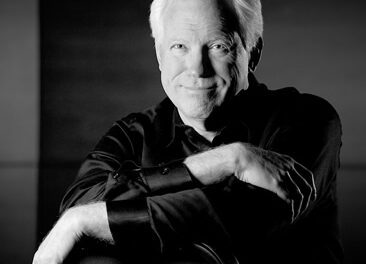“I will honour Christmas in my heart, and try to keep it all the year. I will live in the Past, the Present, and the Future. The Spirits of all Three shall strive within me. I will not shut out the lessons that they teach!” – Ebenezer Scrooge, A Christmas Carol
Imagine a world plagued by an unequal distribution of wealth, one where exceedingly high rates of unemployment and homelessness reflect the crippling dominance of a private banking system…. Imagine a holiday season governed by the greedy to further oppress the impoverished. Sound familiar? Yet Charles Dickens could not have had any insight as to how his now-timeless classic A Christmas Carol would parallel the social constructs of a world more than 150 years after his own.
The 4th annual production of Triad Stage‘s A Christmas Carol, adapted by Artistic Director Preston Lane, captures the allegorical intent of Dickens’ original novella. Serving as the debut installment of a continued presence in Winston Salem, at Hanesbrands Theatre, the production represents Triad Stage’s growth into its name-bridging artistic partnerships in the Triad region.
The story, presumably familiar to us all, tells of the wealthy yet cold moneylender, Ebenezer Scrooge, and his obsession with the material world and things that can be quantified and measured. His holiday cruelty to the people around him, such as his nephew Fred and fateful employee Bob Cratchit (father of sickly Tiny Tim), lead to visitations from four ghosts, which inform him of the error of his ways.
Director Bryan Conger is able to utilize the ensemble of young actors in a way that both comments on the social/political neglect of underprivileged youth and empowers the group as central narrators of the plot. It is interesting to note that the production begins and ends with children, with very few scenes throughout not in some way shaped by their presence. Children, especially this cast of performers, are able to humanize the notions of need, fragility, and abandonment. Therefore, when coupled with Conger’s choice to juxtapose their story-driving narration with blocking that depicts instrumentality, in scenes in where the children literally become used inanimate objects, the emotional impact is unmistakable.
Wilson Bridges as Fred and Young scrooge, provided a particularly charming performance, while Josh Foldy was heart warming as the diligent and loving Bob Cratchit. Beth Ritson also shone as the Beggar Woman and leader of the pack young narrators. Additionally, Rosie McGuire was quite exceptional as the Mrs. Fezziwig and the Ghost of Christmas Present. Her beautiful soprano voice and endearing disposition were a joy to witness every moment she took the stage.
Sadly, there were moments of energetic inconsistencies. Most noticeably with actress Tara-Whitney Rison, who was splendid as Hortence and the Charwoman, yet fell flat as the Ghost of Christmas Past. Rison left much to be desired from a character that could support a bit more grandeur.
However, no production of A Christmas Carol could triumph without a Scrooge to carry the weight. Fortunately, Gordon Joseph Weiss has perfected the character. With three previous years of performances as the principal character under his belt, Weiss was spectacular. Quite the veteran and accomplished actor, Weiss embodied the physicality and vocalization of Scrooge. Listen for his glottal-stopped articulation of the text, particularly “Bah, Humbug!”
It would be remiss not to acknowledge the creative team respectively. John Conyne‘s minimalist scenic design is quite effective. The use of rolling objects and a screened backdrop, beautifully lit by Roz Fulton and projected with images by Nicholas Hussong, enhance the magic of the story. David E. Smith is able to do wonderful things with the sound, especially by creating ghostly echoes and distorting voices. Kelsey Hunt‘s costuming is consistently strong through the Victorian period piece, nailing the various economic statuses.
The production strikes true to the audience because it stays aligned with the spine of Dickens’ story: humility and redemption. In many ways, Ebenezer Scrooge reflects the ideals of our American Dream. After all, he is a self-made businessman, conducting his affairs with the intent of self-preservation. The potential of a “Scrooge” to live among and inside all of us is great, especially when coupled with the very genuine reality of there being far too many Bob Cratchits working hard to make ends meet and parenting far too many Tiny Tims. It may be bittersweet that such a tale can resound as it still does for audiences, with its subtle political protest of poverty and greed, but it is all enjoyment when done as well as this production.
A Christmas Carol continues through December 22. For details, see the sidebar.











